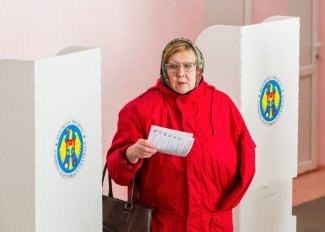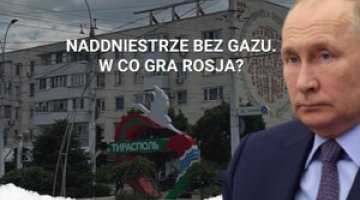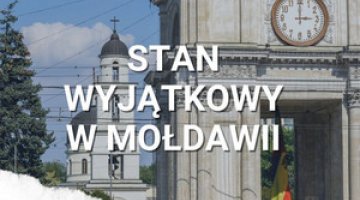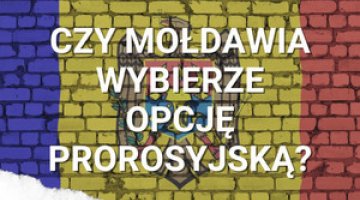Moldova: elections without hope

In the parliamentary elections in Moldova held on 24 February, the pro-Russian Party of Socialists (PSRM) associated with President Igor Dodon received the most support. The party obtained 31.15% of the proportional vote on the national list, which gives it 18 deputies and an additional 17 seats in single-mandate constituencies (making a total of 35 of the 101 parliamentary seats). The second party in parliament by number of deputies is the currently ruling and nominally pro-European Democratic Party (PDM) led by Vlad Plahotniuc, an oligarch and the richest person in Moldova. The PDM, which received 23.62% of the proportional vote, can count on a total of 30 seats (13 from the national list and 17 from the single-mandate constituencies). The ACUM bloc of the pro-European opposition, which includes the Action and Solidarity Party (PAS) of Maia Sandu, and the Platform of Dignity and Truth (DA) group led by Andrei Năstase, will have 26 deputies (26.6% of the proportional vote, and 12 deputies in single-mandate constituencies). The new parliament will also include 7 representatives of the populist party led by Ilan Şor, a businessman and mayor of Orhei (8.4% of the votes in the national list and 2 single-mandate constituencies), as well as three formally independent candidates.
The OSCE declared that elections were competitive and fundamental rights were generally respected, but the campaign took place against a backdrop of disaffection with public institutions and was tainted by allegations of pressure on public employees, strong indications of vote buying and the misuse of state resources.
Commentary
- The result of the parliamentary elections means that the representatives of the ruling clan-oligarchic elite led by Vlad Plahotniuc and President Igor Dodon will remain in power. These forces are not interested in the structural reconstruction of the country or the implementation of major reforms, including the Association Agreement with the EU. In recent years, both politicians have developed a specific system of government resembling a kind of political cartel, whose aim is to prevent anti-system groups (such as PAS and DA) from coming to power, as they could threaten the existence of the current system and its avoidance of real reforms.
- The result obtained by the PDM should be regarded as a huge success, especially in the context of the high level of public aversion towards this group (both the party and its leadership – especially Plahotniuc – are associated with corruption scandals, including the disappearance of US$1 billion from the Moldovan banking sector in 2014), and the pre-election polls which forecast its support at only 13-16%. The party’s good result is primarily connected with the reform of the electoral system in 2017 at the initiative of the PDM (and with support from the PSRM). These changes were controversial and criticised by the country’s Western partners (including the Venice Commission); they introduced a mixed electoral law, under which 50 members are elected proportionally from party lists, while 51 are elected in single-mandate constituencies. In recent months the PDM also launched a number of social programmes (including subsidies for beginners’ housing, free medicine for certain categories of citizens, etc.), and raised salaries and pensions. An important role in building up its popularity was also played by the media (80% of TV stations in the country are directly or indirectly controlled by Plahotniuc).
- In recent times, thanks to an expensive image campaign lasting many months aimed at improving Plahotniuc’s poll numbers before the parliamentary elections (the oligarch intensively drew on the help of foreign, mainly American and Romanian, PR specialists), his popularity rose from 1-2% to 5-10%. There is no doubt that the PDM also put pressure on government and public-sector employees to vote for the ruling party.
- Support for the Socialists, who were openly supported by Russia, was significantly lower than the polls had indicated. In recent months, President Dodon (who is the electoral driving force of the PSRM) met key Russian politicians in Moscow on several occasions, which was intended to build up his image as a statesman and boost the Socialists’ popularity among Moldova’s pro-Russian electorate. At the end of 2018 Russia, in order to support Dodon, decided to suspend for a period of six months the customs duties introduced back in 2014 (in connection with Chisinau signing the Association Agreement with the EU) on a number of export products which are important for the Moldovan economy (mainly fruit, vegetables and wine). At the same time Moscow declared that Moldovan guest workers (whose total number in Russia is estimated at c. 500,000-600,000) who had violated immigration law (for example, by overstaying their permitted residence period) would be able to leave the territory of the Russian Federation with impunity between 1 January and 24 February 2019, and that any entry bans imposed on them would be reconsidered. Such actions were aimed not only at improving the image of the Socialists, but also to make it possible for the greatest number of the party’s supporters to vote in the upcoming elections. However, some of Dodon’s potential votes were taken by Ilan Şor, who mainly appealed to pensioners and those nostalgic for the Soviet Union, a group which traditionally votes for the PSRM.
- The anti-oligarchic and pro-European opposition bloc ACUM obtained very good results, especially considering how little it spent on campaigning (which it mainly conducted online), the lack of media support, and the negative campaign conducted against PAS & DA for many months (inspired mainly by Plahotniuc’s camp). Maia Sandu and Andrei Năstase, the leaders of PAS and DA, are among those who will enter parliament from single-mandate constituencies. ACUM primarily owes its success to a large protest electorate, which is aware of the existence of the Dodon/Plahotniuc cartel and is committed to removing it. The opposition’s electoral success may be a convenient starting point for it before the local elections planned for June this year. The election was characterised by an unprecedented high level of activity by voters from Transnistria. About 32,000 inhabitants of the region with Moldovan passports (twice as many as during the second round of the 2016 presidential election) cast their votes at specially designated points on territory controlled by Chisinau (polling stations did not operate within the breakaway republic). In addition to voting for the national lists, they can also select two deputies to two single-mandate constituencies serving the region. Most of these voters were brought to the polling stations in an organised manner using buses belonging to the private company Sheriff, which exercises de facto control over the region. Everything indicates that the mass transport of these voters was coordinated by the PDM and the separatist authorities. According to numerous reports, Transnistrian residents were bribed to vote for the PDM. ACUM’s leaders announced that they will therefore not recognise the results of the elections to the single-member districts in Transnistria.
- In the coming days it is expected that the PDM will start negotiations on forming a coalition with the ACUM bloc. This will be largely a sham operation, designed to legitimise the Democratic Party as having a supposedly pro-European outlook. Admittedly ACUM’s leaders have flatly refused to cooperate with Plahotniuc, but at the same time they will come under pressure from some Western partners (particularly the US and Romania), who will argue that a coalition with PDM, although it will look bad, is necessary to protect the country against destabilisation, and would reduce the risk of the pro-Russian camp taking power. Plahotniuc is very likely to blame ACUM for the failure of the negotiations, and at the same time he will probably start to try and form a minority government with the PDM’s satellite groupings. Both Şor’s party and the three ‘independent’ candidates are considered to represent Plahotniuc’s interests; this means that when the PDM wants to appoint a government it can count on 40 votes in the new parliament. The PDM will try to get the 11 votes which it needs to obtain a majority by trying (by corruption and intimidation) to win over deputies from the pro-European parties, and also possibly the PSRM.




